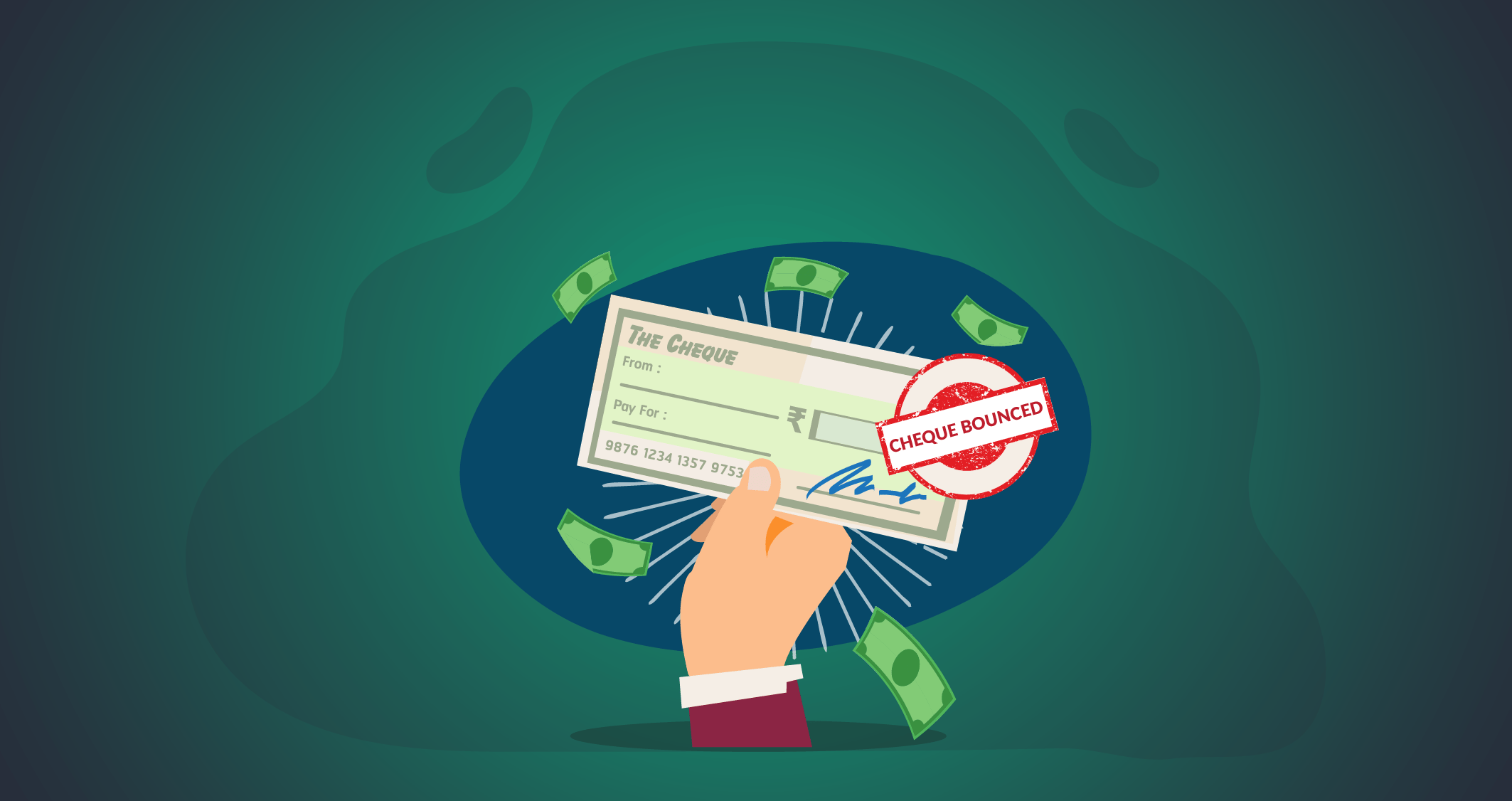Bounced a Cheque? Here’s How You Can Recover from It

In order to understand what a bounced cheque is, it is important to understand what a cheque is. It is an instrument that is used by various banks to transfer sums of money or carry out inter-account money transfers in a secure and stable environment.
If you wish to carry out business-related financial transactions, using a cheque is one of the safest ways of doing it as entries against the cheques are recorded by the banking institutions. These can be later used for tracking purposes if need be.
Now that we have understood what a cheque is, let us talk about cheque bounce.
If a cheque is dispensed with a certain amount on it but somehow the processing of the cheque remains unsuccessful, it is known as a cheque bounce. One of the most common reasons for cheque bounce is that the issuer does not have sufficient funds in the account. A cheque that is returned without processing due to the unavailability of adequate funds in the issuer’s account is called a bounced cheque.
Steps to take when a cheque bounces
- Quickly get in touch with the business, organisation, or individual who tried encashing the cheque. If you know that your cheque has bounced, or there is a possibility of the cheque bounce, communicate as early as possible and bring down all possibilities of ill feelings or confusion that can arise because of the bounced cheque
- Cover the bounced amount as fast as you can. Maybe the bounced cheque was just an accident and all you need to do is cover up for some insufficient funds. In such a situation, cover the amount quickly
If you do not have the required funds, speak with the recipient about the situation. You might be able to negotiate and arrange a part-payment plan.
Consequences of bounced cheques
A bounced cheque has its repercussions. It can land you in troubled waters, as in India cheque bounce is considered a criminal offence. Legal action might be taken by the bank towards the issuer in case of a cheque bounce. It is highly advisable to check your funds before issuing a cheque to anyone.
You could also be charged with an overdraft fee, an insufficient funds fee, or a returned cheque fee. Understand the overdraft policies of your bank properly.
The amount of trouble you face because of a bounced cheque also depends on your relationship with the recipient. Thus, it is advisable that you communicate with the recipient at the earliest in case there comes a situation like this.
Depending upon the amount that was dispensed on the cheque and all your past records, you might face heavy legal issues as well. As cheque bounce is a criminal offence, the recipient of the cheque may sue you.
How to avoid bounced cheques?
- Many banks offer an overdraft protection facility that lets you transfer funds from other accounts that are linked for covering an overdraft. Speak with your bank to know if this particular facility is chargeable or not.
- Keep sufficient funds in your account. When you sign a cheque for a recipient, check if you have the adequate amount in your account. A bounced cheque is not a good experience for both, the issuer and the recipient.
Bottom line:
It is very important to understand that a bounced cheque dents your credibility, not just for the recipient, but also for the bank. It is a criminal offence and you do not want to fall into a legal mess. Thus, keep a track of your funds and only dispense cheques when you have the required sum in your account.
